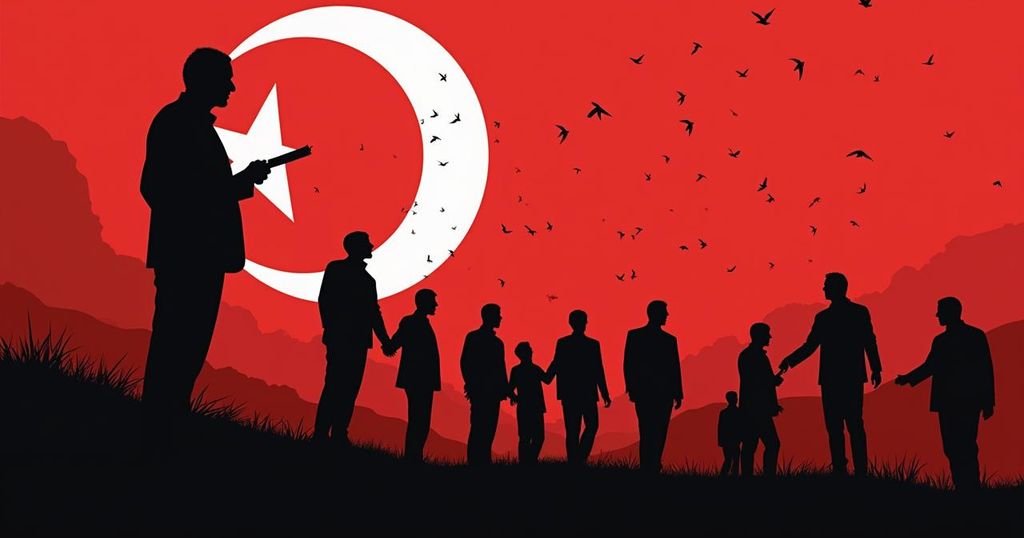The Sudanese civil war, now in its 18th month, has escalated following a major offensive by the SAF against the RSF, resulting in significant casualties and displacement. All attempts at ceasefires have failed, and humanitarian conditions are deteriorating rapidly. The conflict, rooted in power rivalry, is complicated by ethnic tensions and external arms supplies, leading to a protracted crisis with far-reaching regional impacts.
As of October 2024, the civil war in Sudan, now reaching its 18th month, has seen a resurgence in fighting, particularly following a significant offensive by the Sudanese Armed Forces (SAF) against the paramilitary Rapid Support Forces (RSF) in the capital cities of Khartoum and Bahri. This renewed conflict resulted in over 20,000 deaths as reported by the United Nations, alongside an alarming 10.89 million internally displaced individuals as recorded by the International Organization for Migration. Efforts at brokering ceasefires and peace negotiations have repeatedly failed, including the recent U.S.-led talks meant to coincide with the UN General Assembly. This ongoing civil war stems from a power struggle between the leading generals of the SAF and RSF, namely Abdel Fattah al-Burhan and Hamdan Dagalo. Initially concentrated in Khartoum, the violence has proliferated to numerous regions including Omdurman and the Darfur states. Although the RSF has advantageous positions in various battle zones, the SAF has intensified its airstrikes, capturing territories around Khartoum. Humanitarian conditions have deteriorated severely, with limited access to essential services and a worsening food crisis impacting more than half of the country’s population, approximately 25.6 million people. Several factors continue to fuel the conflict. Both the SAF and RSF remain resolute in asserting their power. The SAF, acknowledged as the legitimate government by the UN, faces the RSF, which opposes the SAF’s international representation. Arms supplies, despite a UN-imposed embargo, have been facilitated through external connections, providing both factions with ample weaponry to prolong hostilities. Furthermore, ethnic dynamics have complicated matters, with regional militias increasingly involved, contributing to escalated violence against minority communities. Despite numerous attempts at ceasefire negotiations—most recently in Geneva, Switzerland—neither faction demonstrated willingness to foster a meaningful dialogue, undermining international mediation efforts. The conflict’s regional repercussions are equally dire, with over two million people fleeing to neighboring nations, exacerbating tensions along borders and heightening fears of broader instability reminiscent of Libya’s fragmentation. Going forward, the complexities of the Sudan war—with its myriad domestic and international players—suggest that a rapid resolution remains unlikely. The dual pressures of humanitarian crises and ethnic strife hang over Sudan, as international actors reassess their strategies in light of ineffective previous interventions. Should the conflict continue unmitigated, the perilous situation may lead to a fractured nation with widespread adverse implications for the surrounding region. In conclusion, the civil war in Sudan unfolds against a backdrop of a prolonged humanitarian crisis and an entrenched power struggle between military factions. While the SAF and RSF exhibit little inclination to negotiate, regional instability grows with ethnic clashes and increasing displacement, necessitating renewed international focus and strategy to address the ongoing turmoil comprehensively.
The civil war in Sudan represents a complex conflict primarily between two military factions—the Sudanese Armed Forces (SAF) and the Rapid Support Forces (RSF)—that initially erupted as a power struggle. The conflict has sparked extensive humanitarian crises, with significant loss of life and widespread displacement of civilians. The SAF, led by General Abdel Fattah al-Burhan, asserts its role as the legitimate government whilst combating the RSF, under General Hamdan Dagalo, which aims to consolidate power and gain international legitimacy. Ceasefire negotiations have consistently faltered, and existing humanitarian access remains severely limited, exacerbating the dire circumstances faced by millions of Sudanese.
The situation in Sudan remains precarious, characterized by a prolonged civil war marked by continuous violence, humanitarian crises, and political power struggles. Without a significant shift in engagement from both the warring factions and international mediators, the likelihood of resolution appears diminished, leading to potential fragmentation of the nation. Sustained efforts are essential to address the humanitarian fallout and seek a pathway to peace, as the ramifications of this conflict extend far beyond Sudan’s borders.
Original Source: www.thehindu.com







